The Berkshires Bowling Alley that Inspired "The Big Lebowski"
It’s been 36 years since the release of The Big Lebowski, the irreverent cult comedy by Joel and Ethan


Exploring Paris’s cemeteries–(Montmartre, Montparnasse, Passy, Père Lachaise, and Picpus)–can be a rewarding task. Artists, statesmen, and industrialists abound in these cities of the dead. Additionally, memorials, historical relics, and works of art make such trips all the more fascinating. With enough time, Paris’ cemeteries will reveal their treasures to any visitors. Given that most visitors are on a strict schedule, a cemetery map will save valuable time when conducting a tour of the cemetery’s highlights. However, most maps only point to the general area in which the tomb is located. This leads to aimless wandering and frustration which can be minimized with prior knowledge of a tomb’s design. Therefore, I hope that these articles will serve as a useful tool for visitors to Paris’ cemeteries as well as a guide to those interested in learning more about some of the most famous and interesting sites in Paris.
Cimetière de Montparnasse was established in 1824, and is located at 3, Boulevard Edouard Quinet. There are more than 300,000 people buried in over 35,000 tombs. It is still an active cemetery with more than 1,000 new burials every year.
The cemetery’s architecture and monuments:
The entrance to the cemetery:
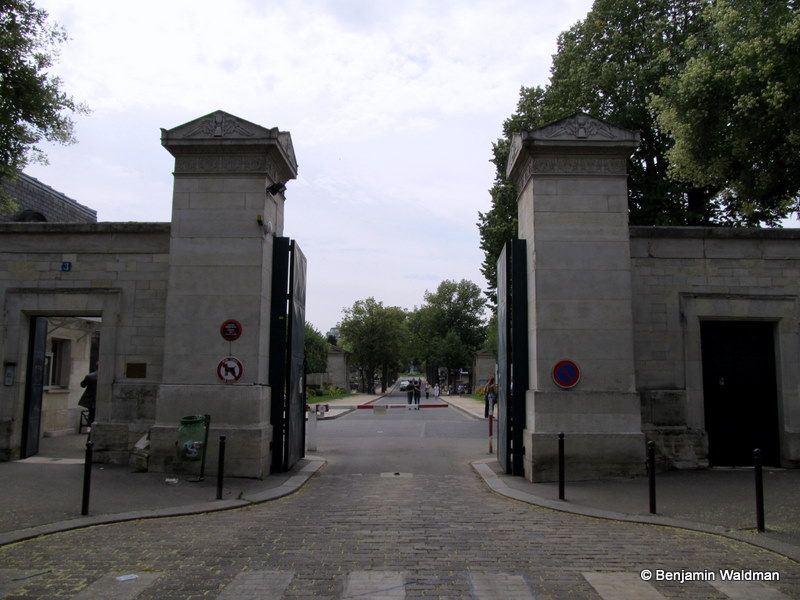
The winged hourglass is a motif that appears at many of Paris’ cemeteries:
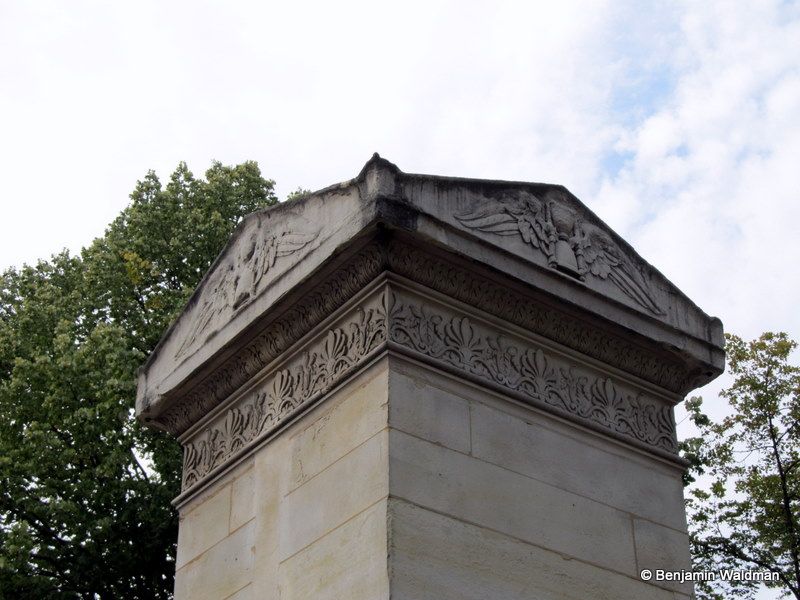
A statue on the cemetery’s roundabout:
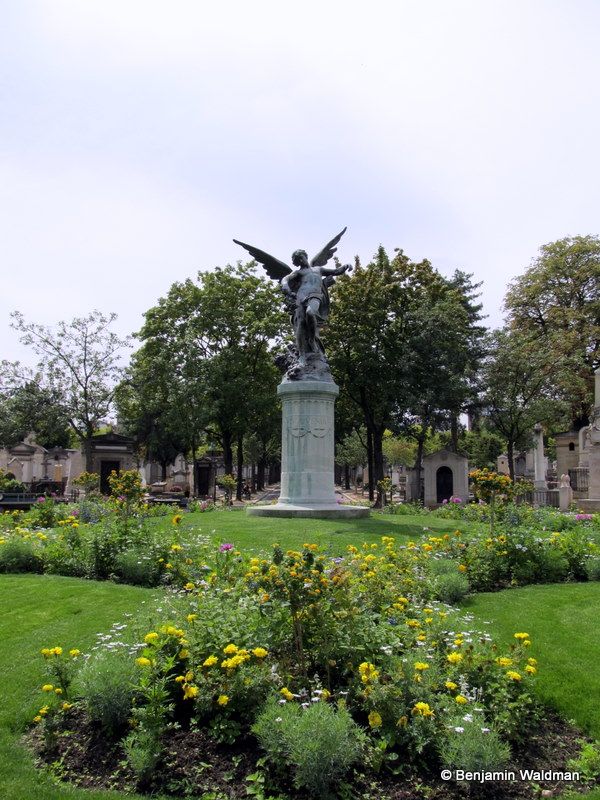
The cenotaph of Charles Baudelaire:
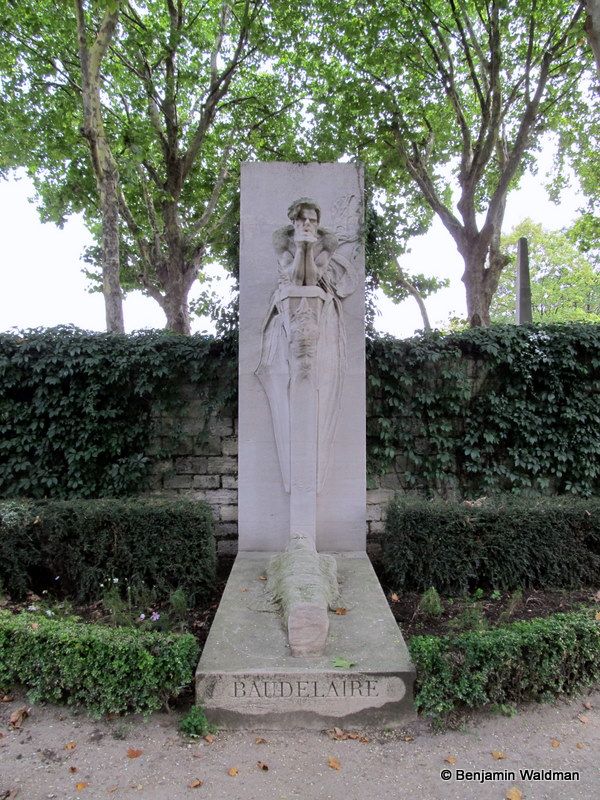
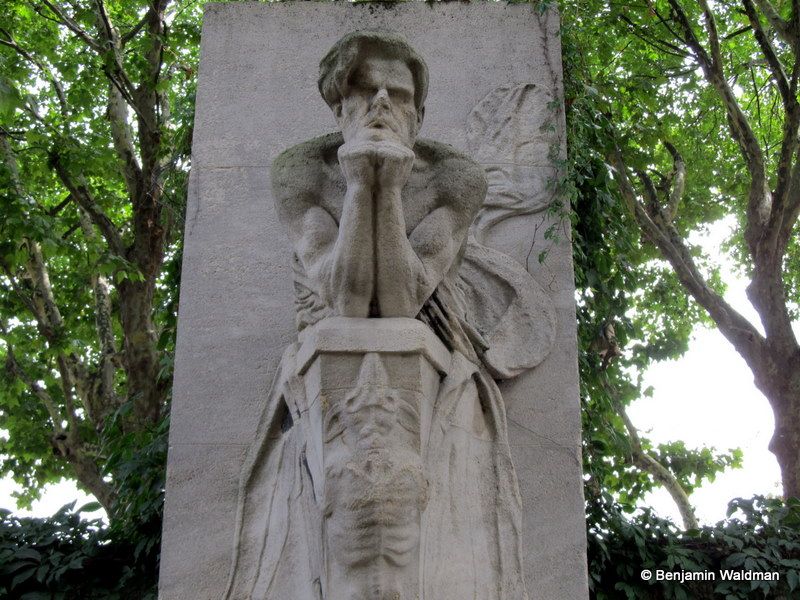
Memorial to Parisian police officers killed in the line of duty:
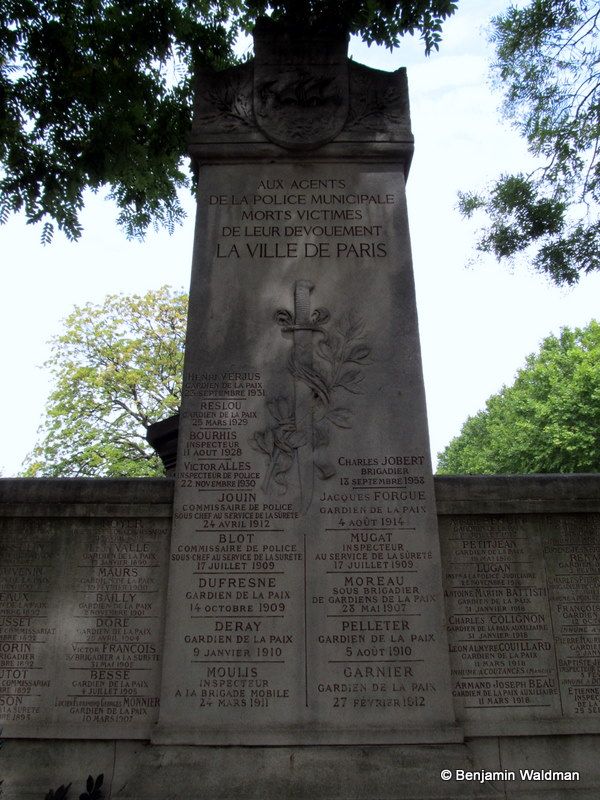
Memorial to the Parisian Republican Guard:
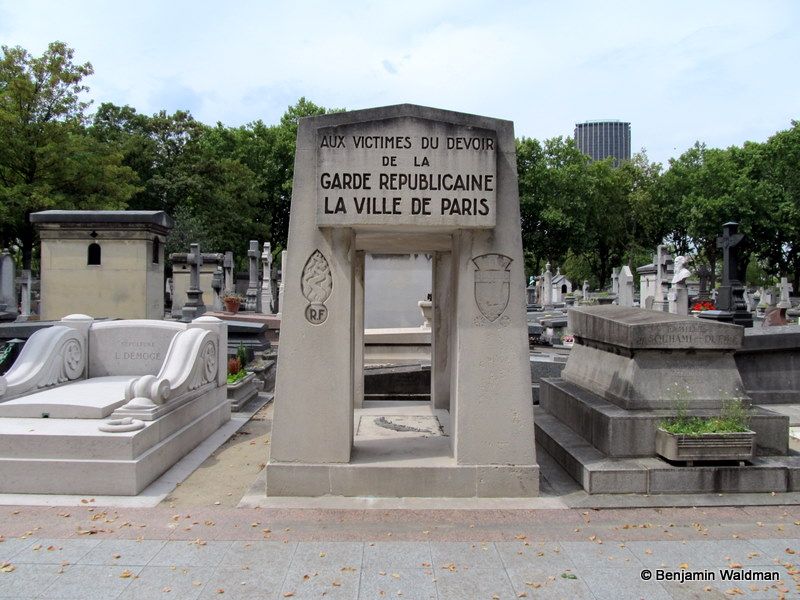
Memorial to Parisian firefighters who fell in the line of duty:
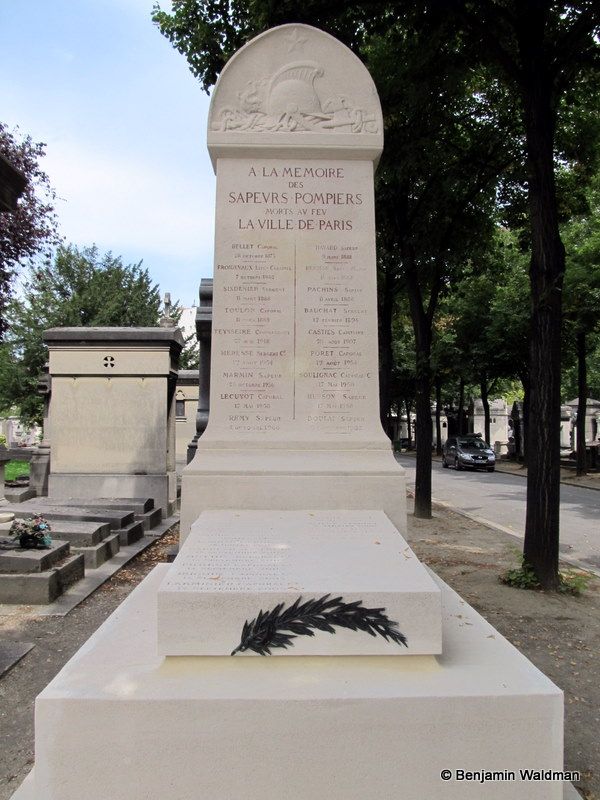
Memorial to soldiers who died in the line of duty:
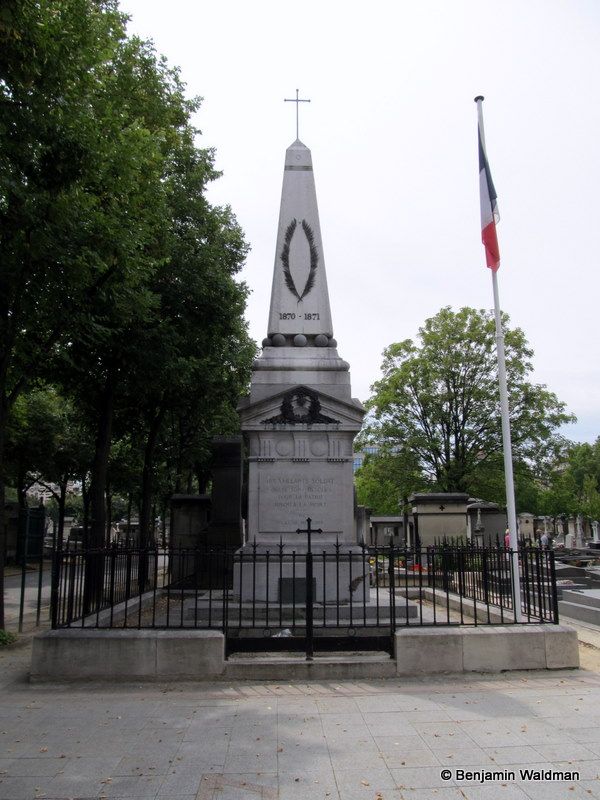
Remnant of a windmill:
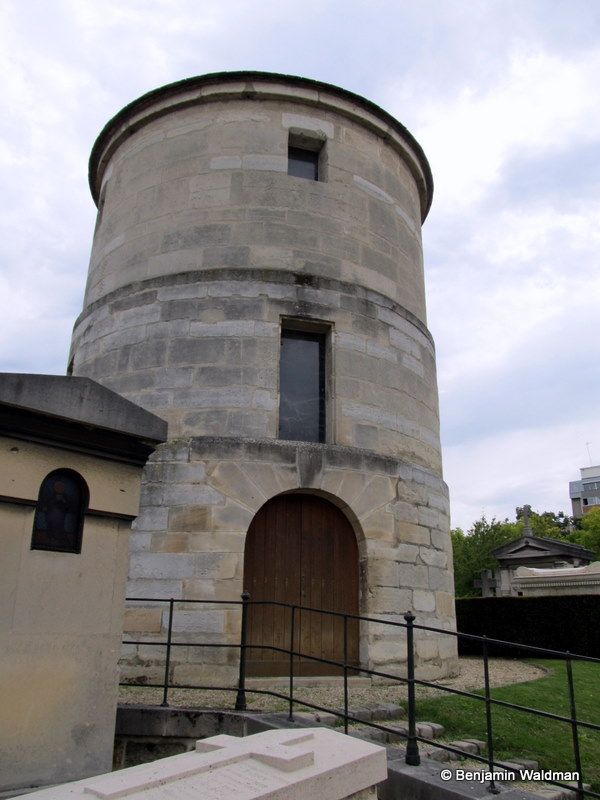
Memorial to the Defenders of Paris:
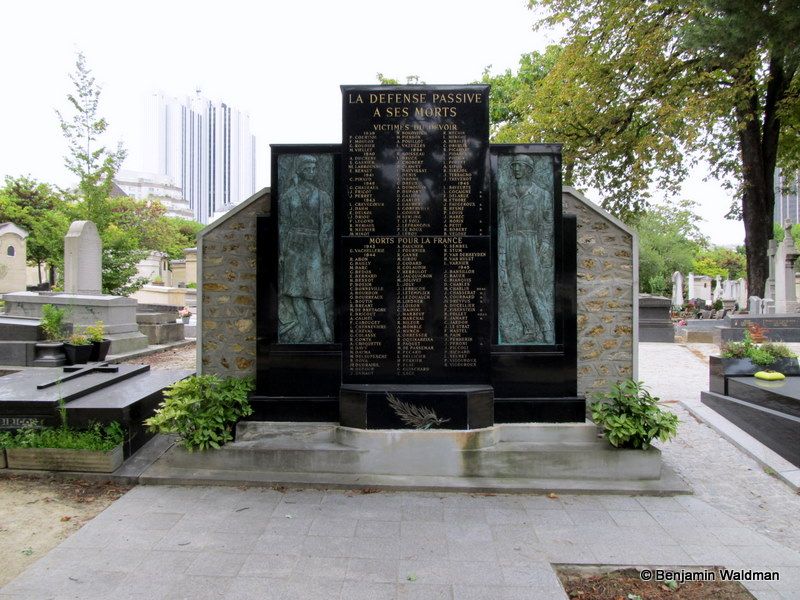
Montparnasse’s famous residents:
Jean-Paul Sartre and Simone de Beauvoir, authors and philosophers:
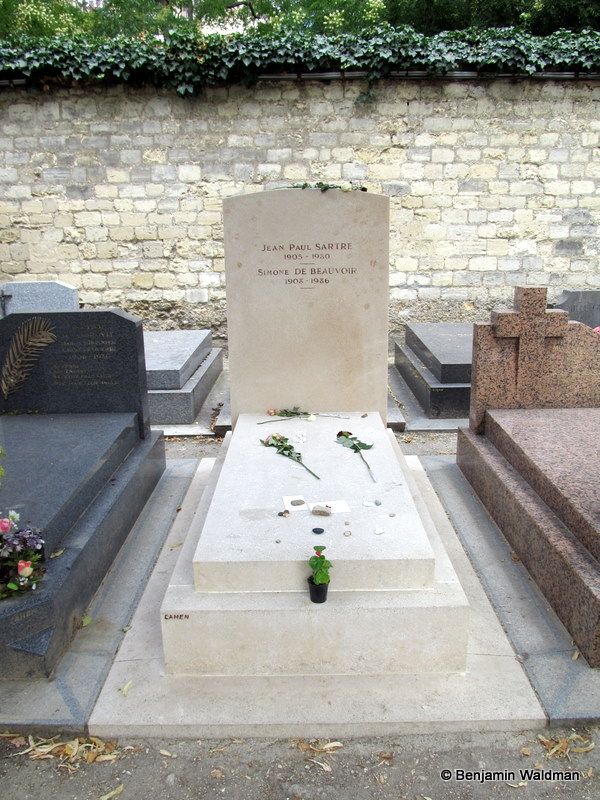
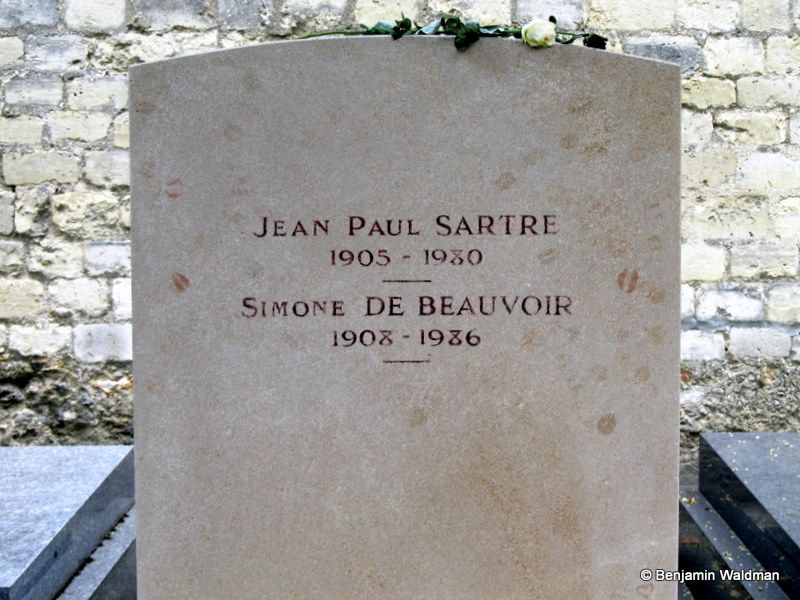
The poet, Charles Baudelaire:
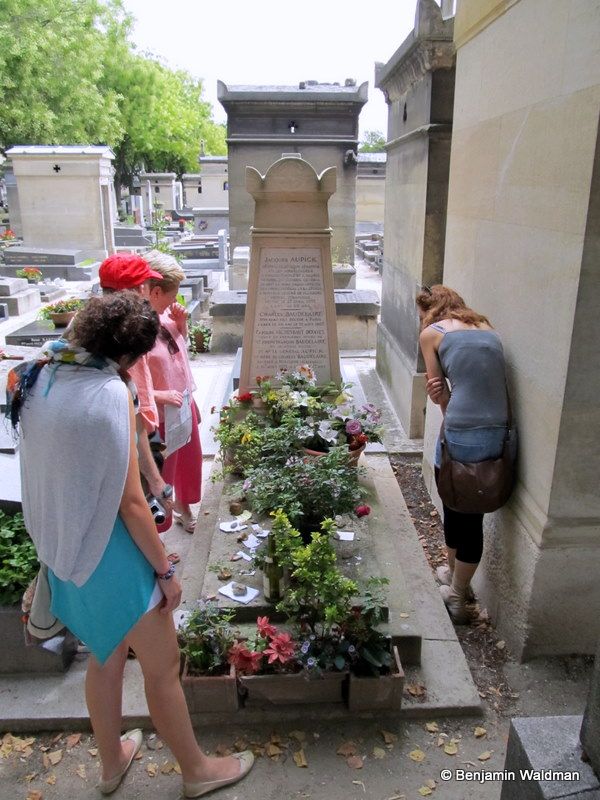
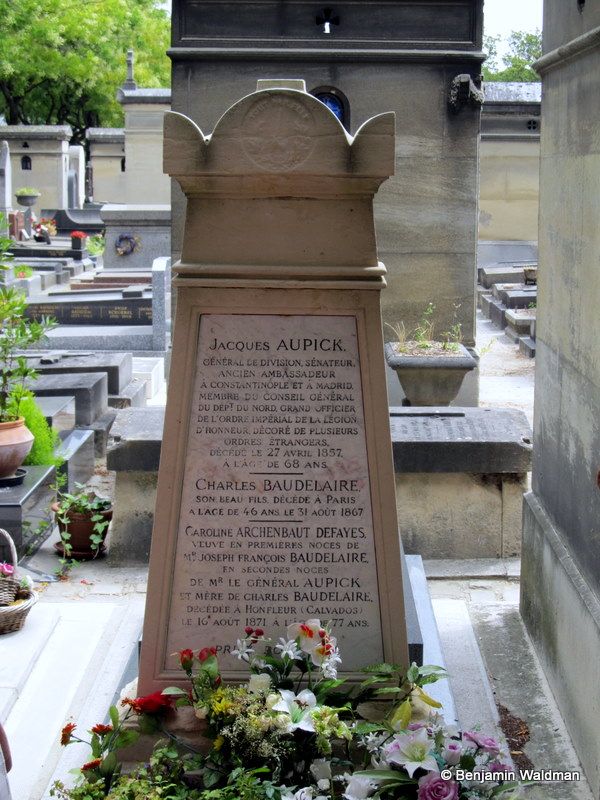
The playwright, Eugène Ionesco:
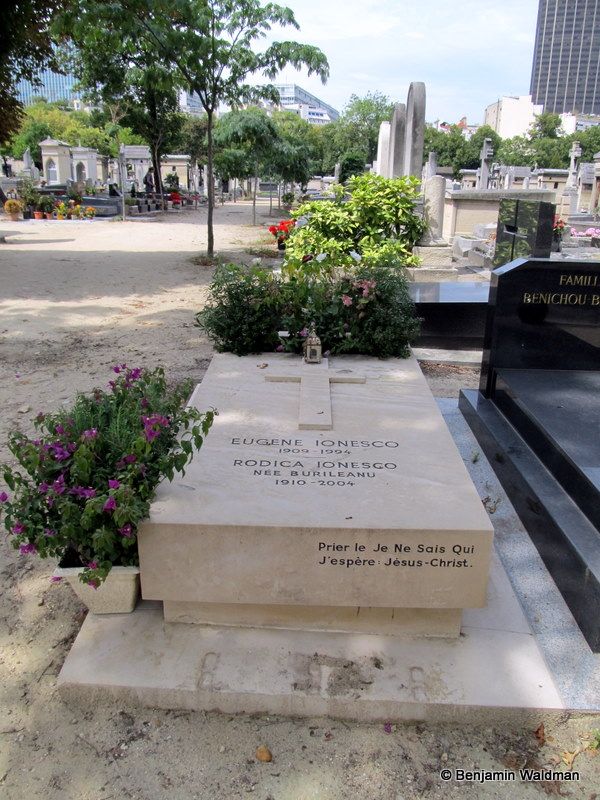
Serge Gainsbourg, poet and singer:
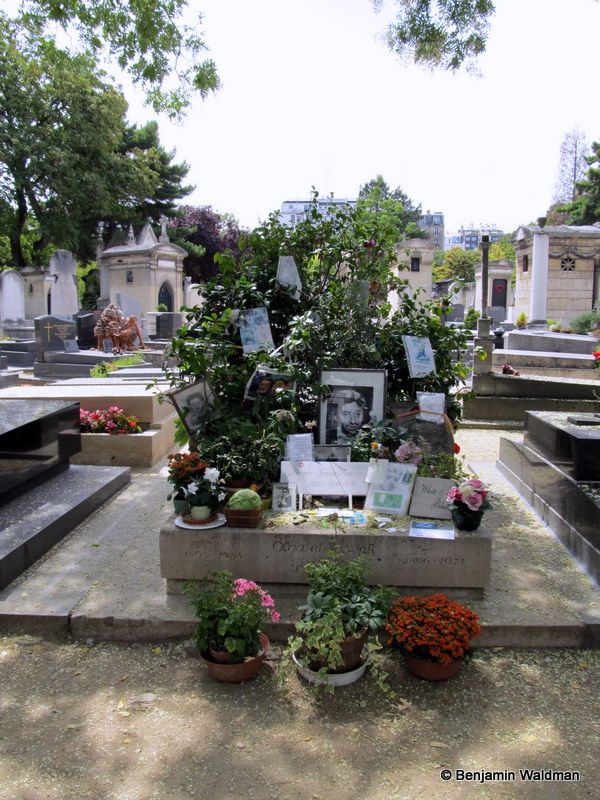
Samuel Beckett, author, playwright, and poet:
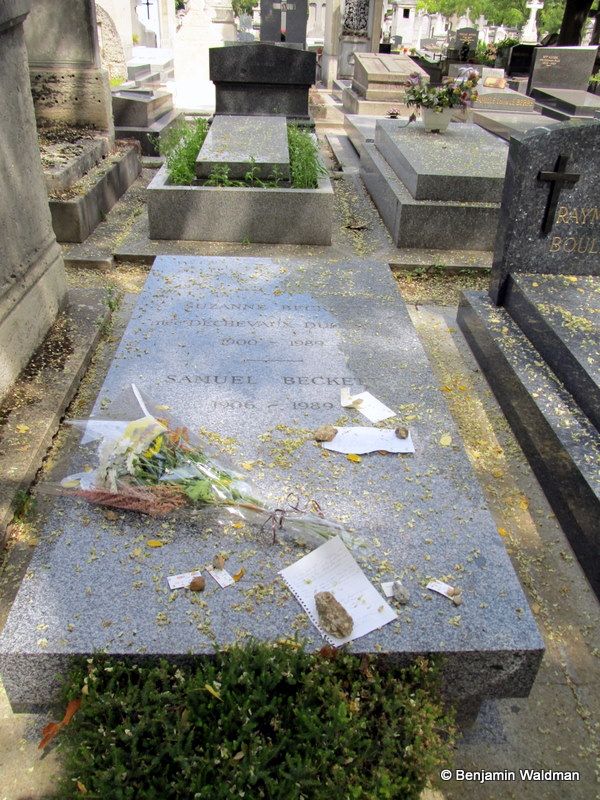
Guy de Maupassant, author:
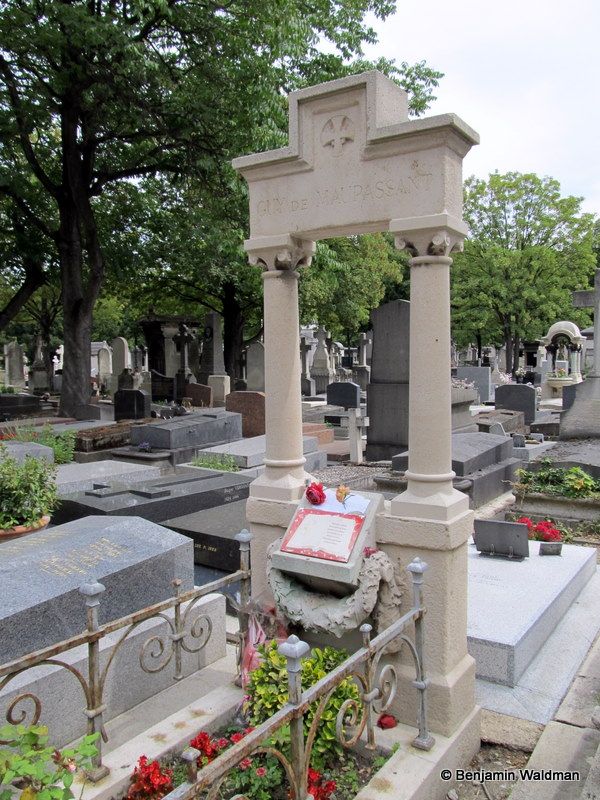
André Citroà «n, founder of the eponymous car factory:
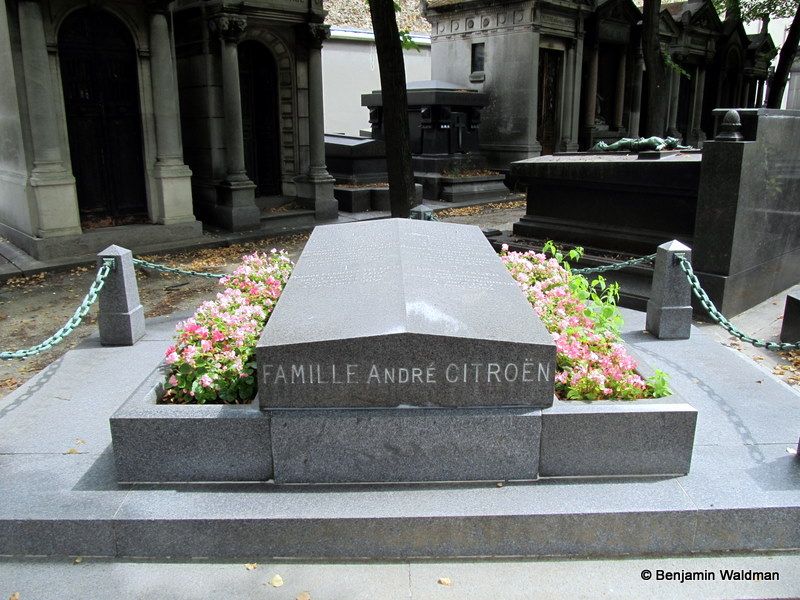
Alfred Dreyfus, the scapegoat in the Dreyfus affair:
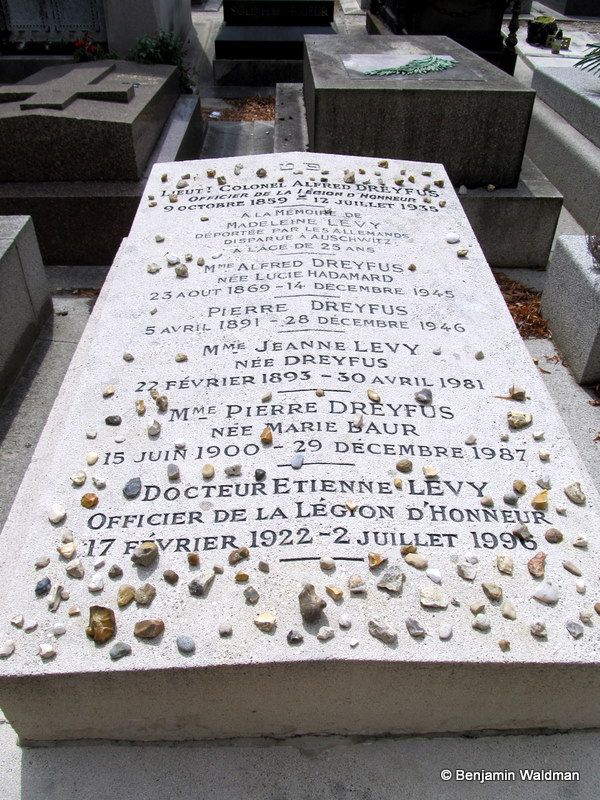
Pierre Larousse, author of encyclopedia Larousse Gastronomique:
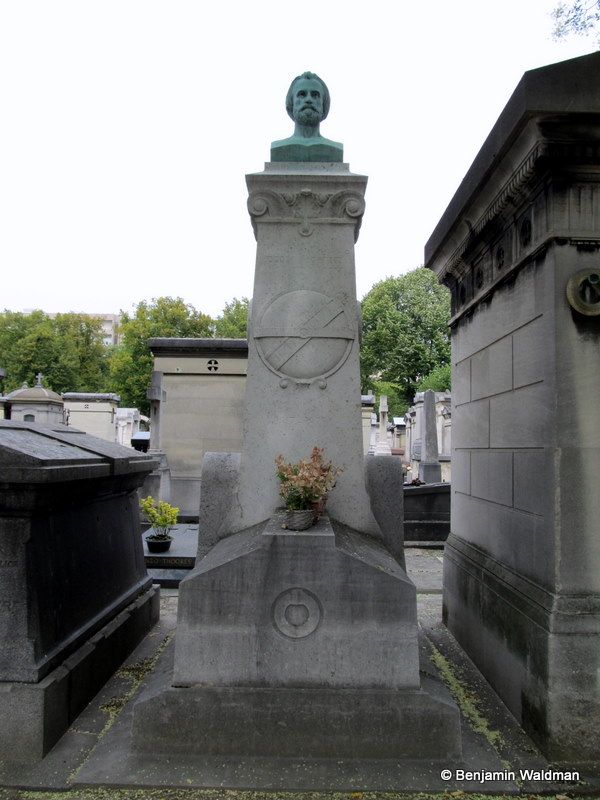
Constantin Brâncuà…Ÿi, sculptor:
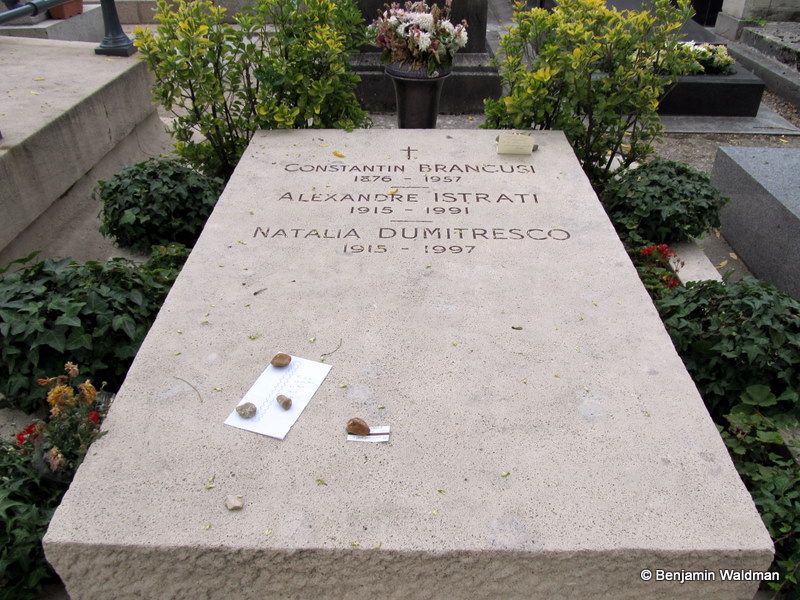
César Baldaccini, sculptor:
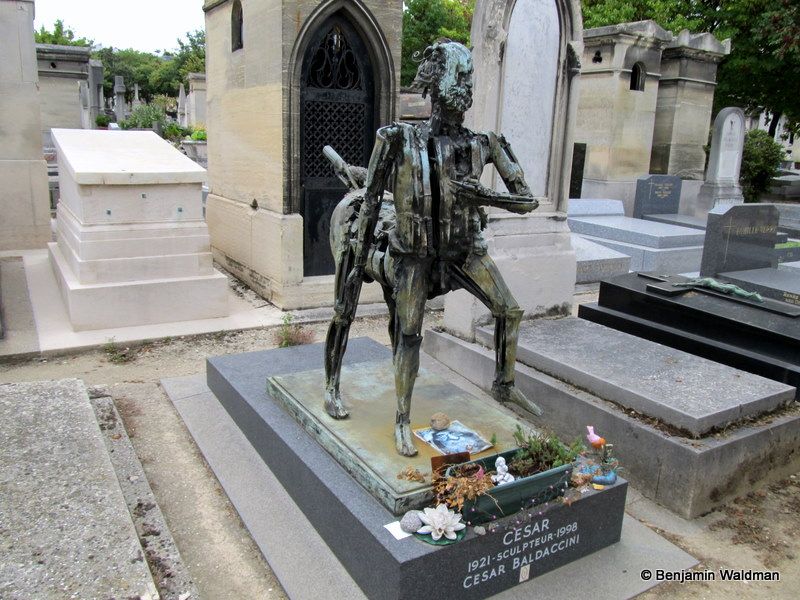
Frédéric Bartholdi, sculptor:
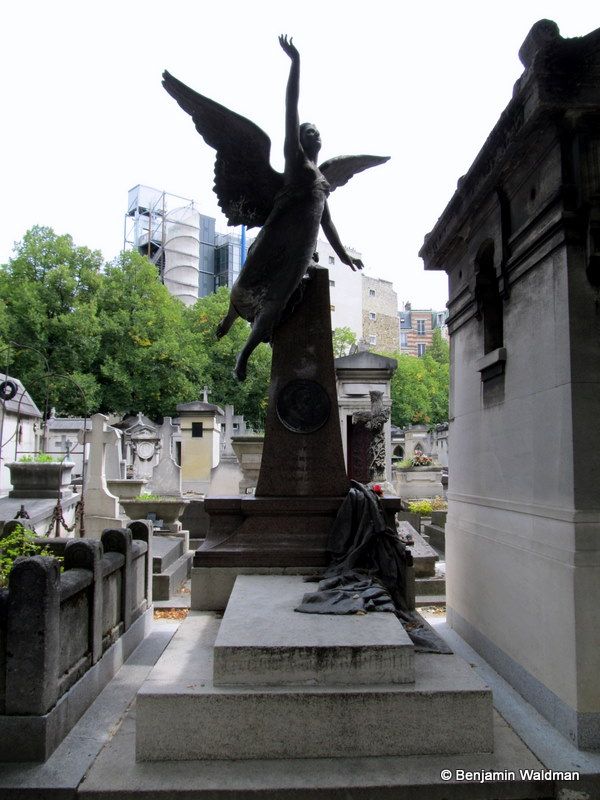
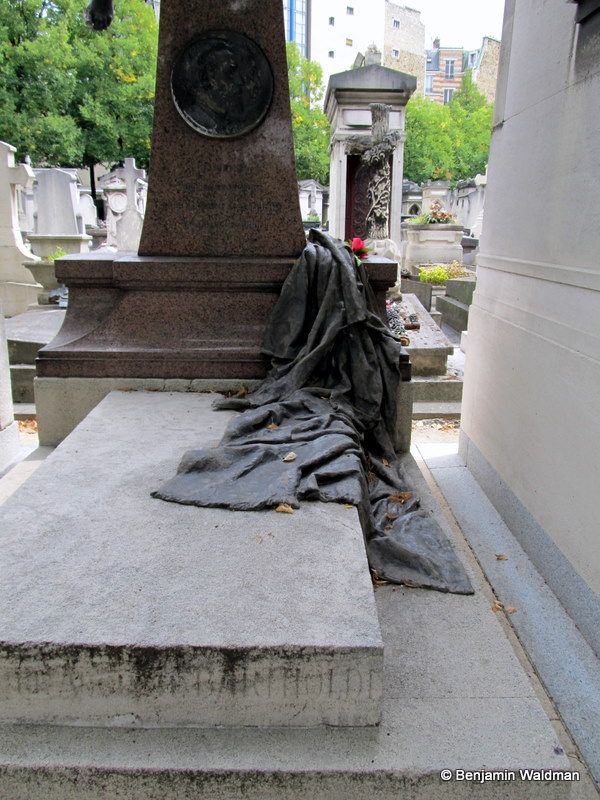
Charles Pigeon, engineer, inventor and manufacturer:
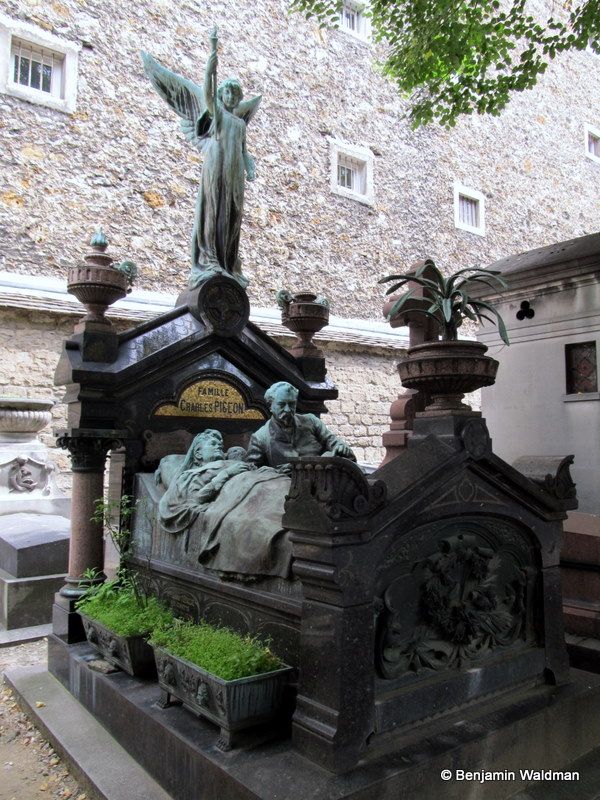
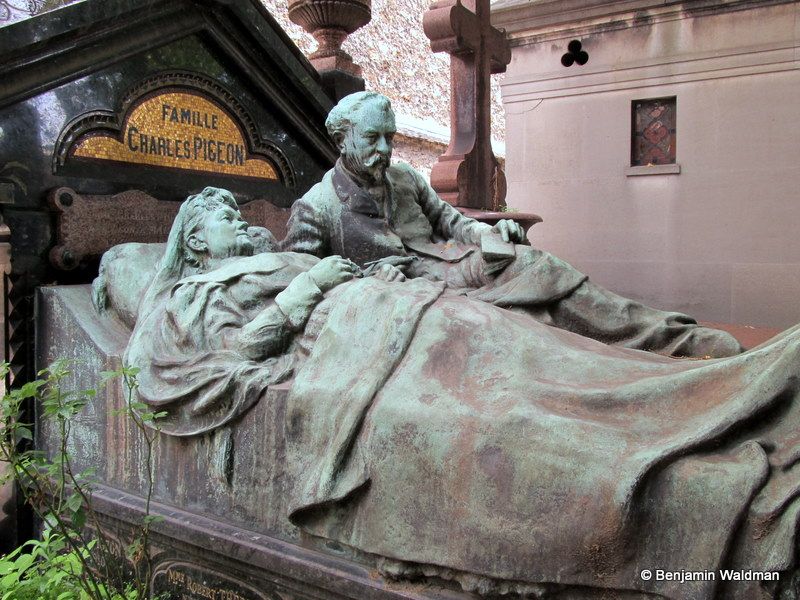
Urbain Le Verrier, the astronomer and mathematician who discovered Neptune:
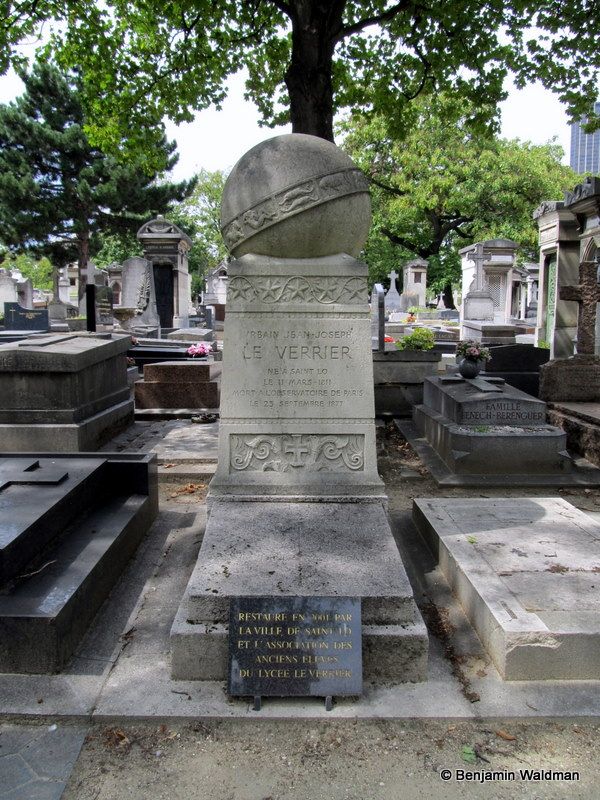
The Kiss, by Brancusi, sits atop the tomb of Tania Rachevskaia, a Russian anarchist who committed suicide for love in 1908:
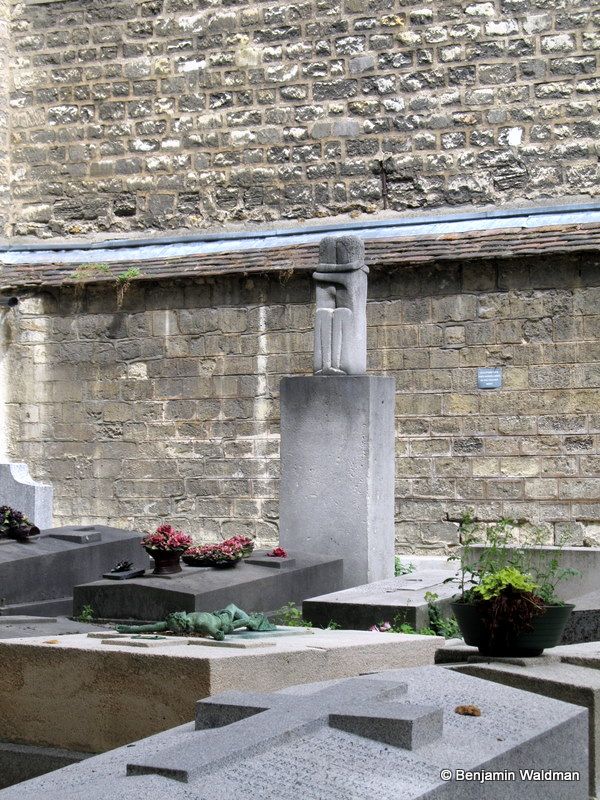
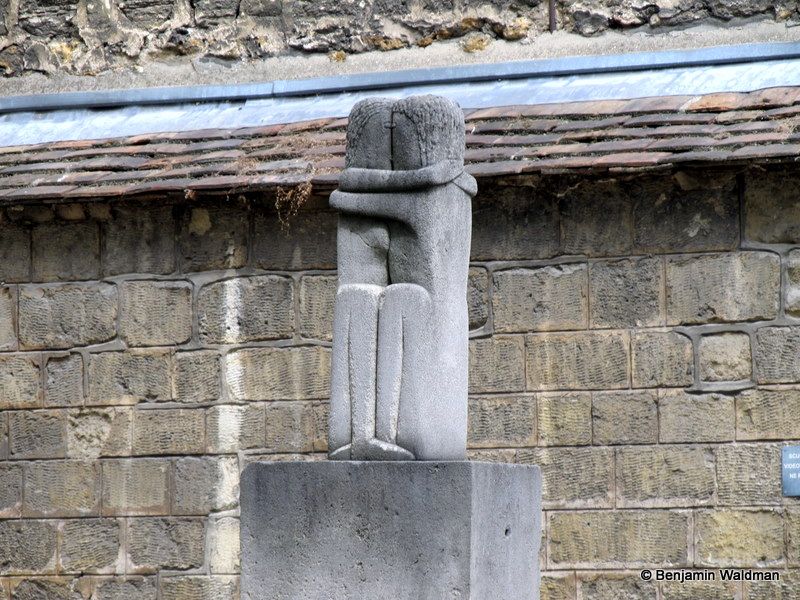
Tombs with interesting art and designs:
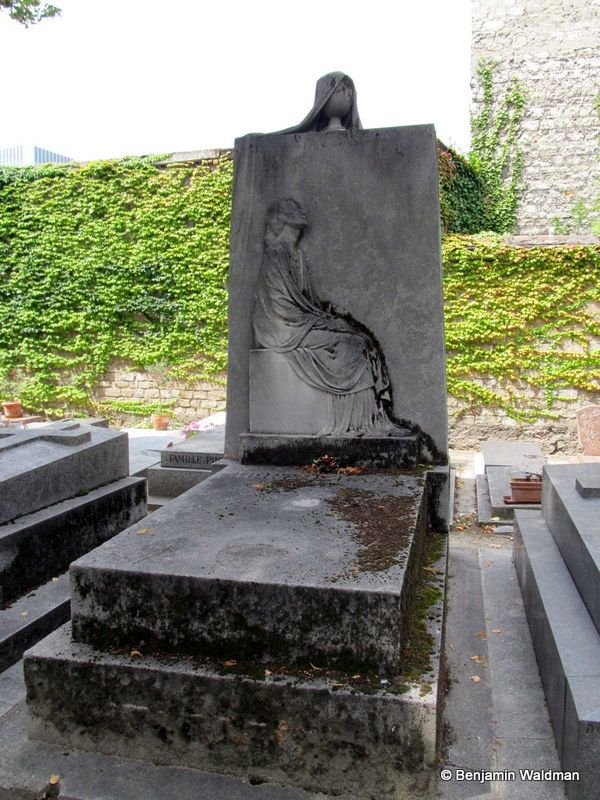
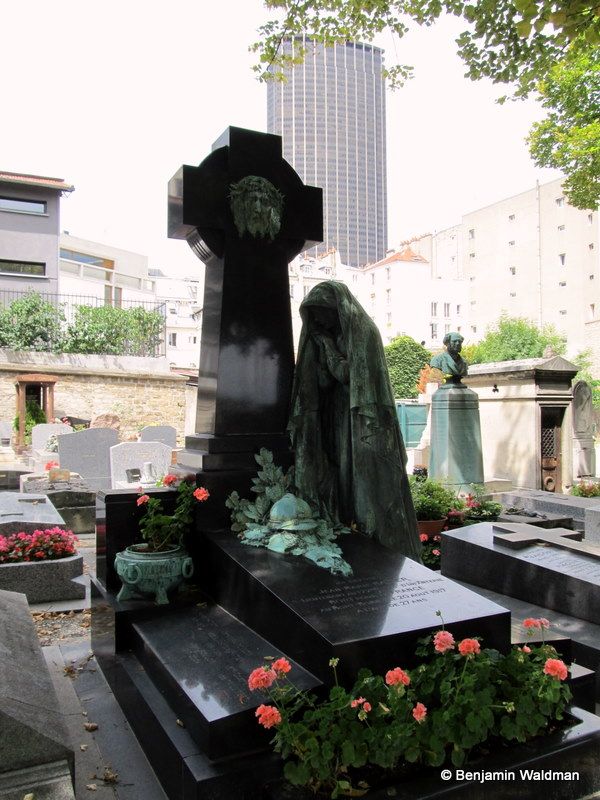
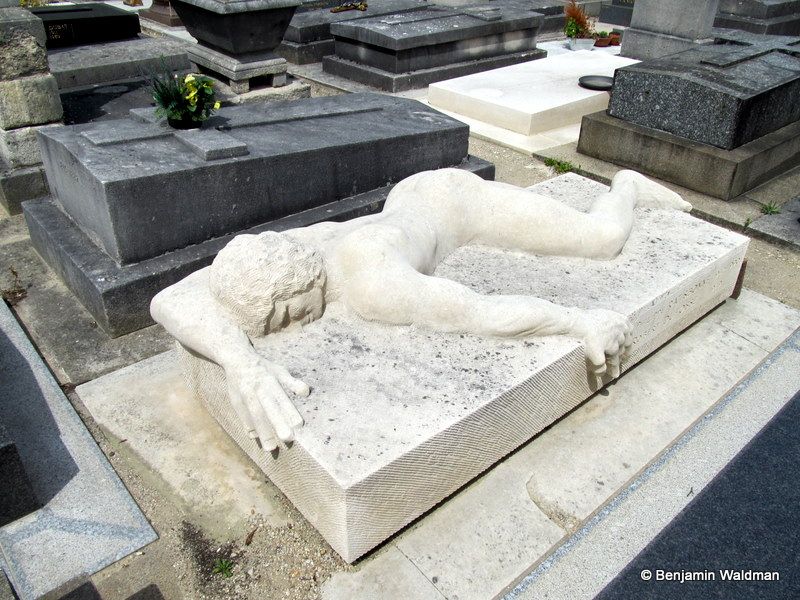
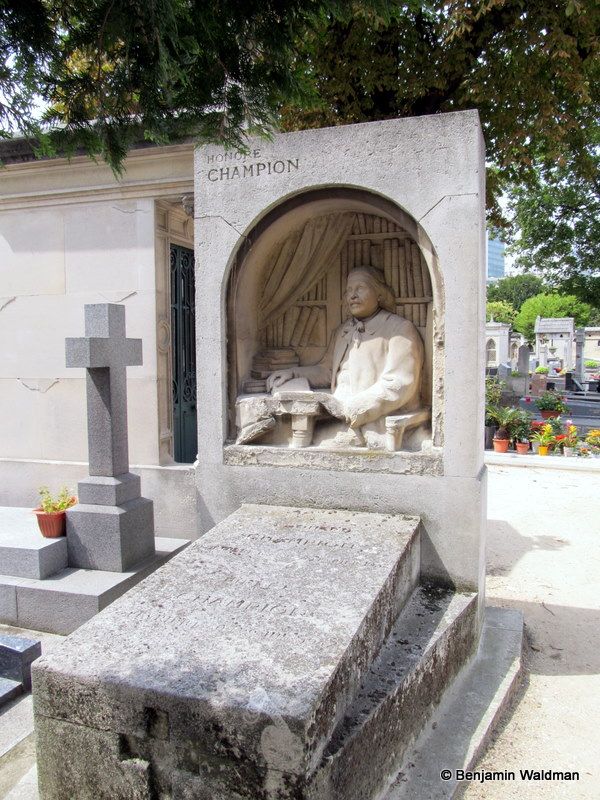
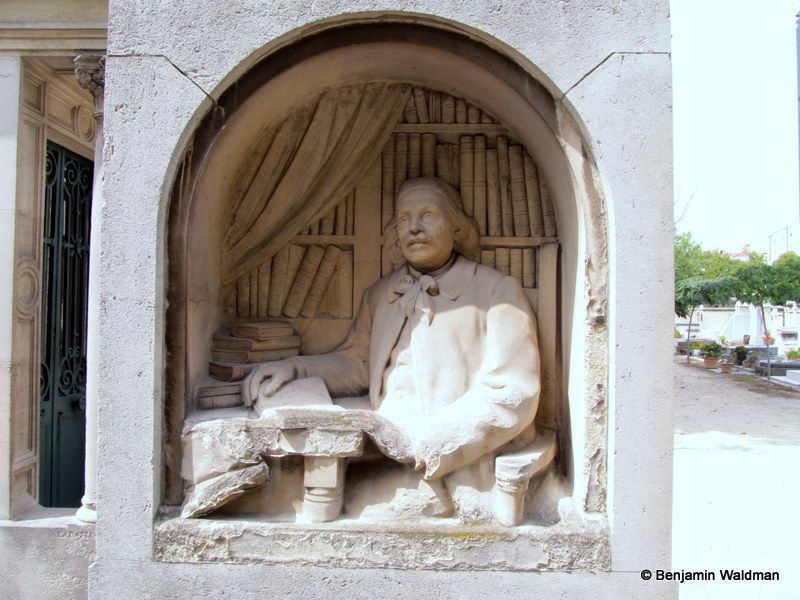
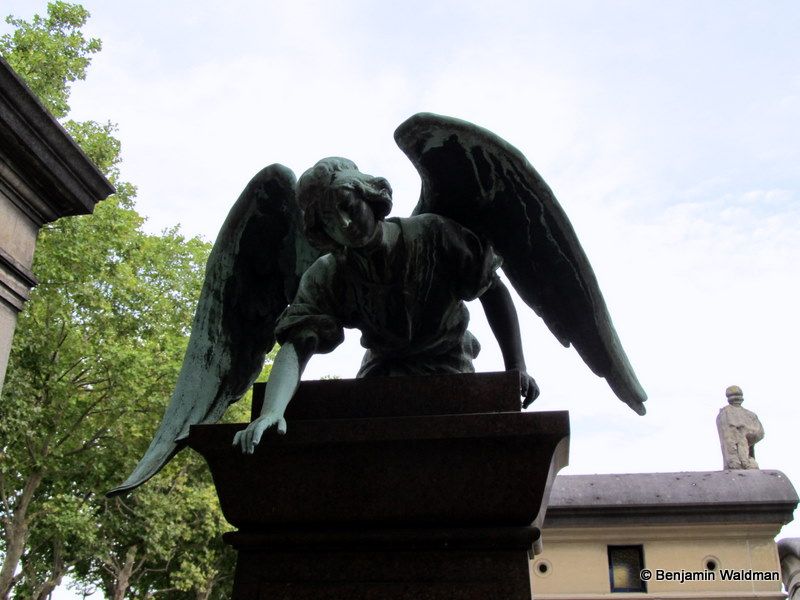
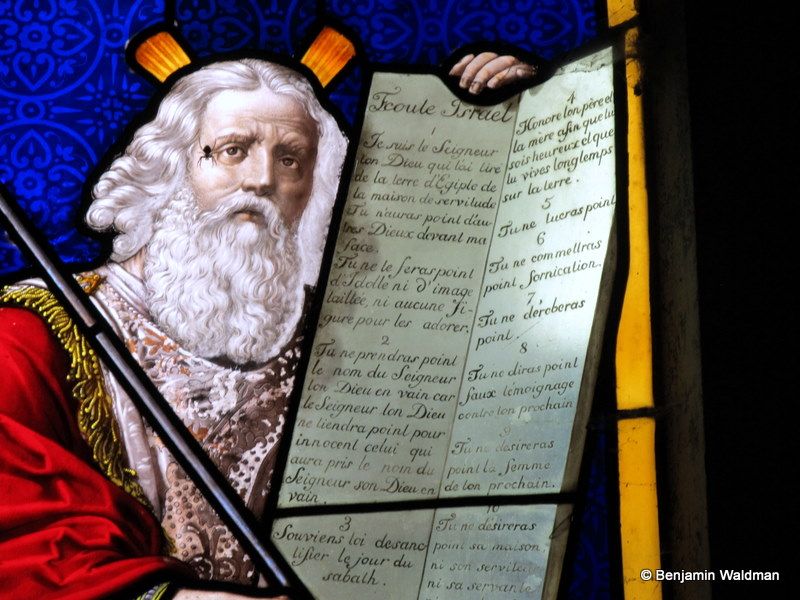
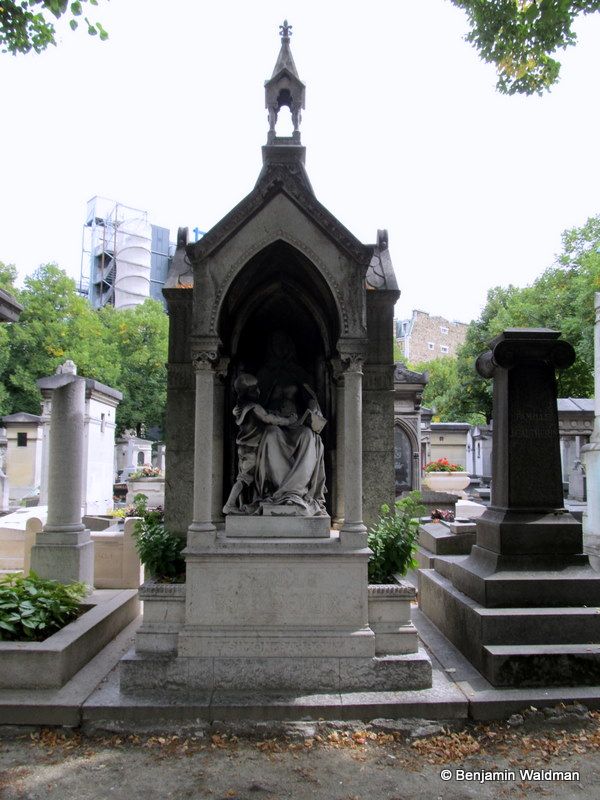
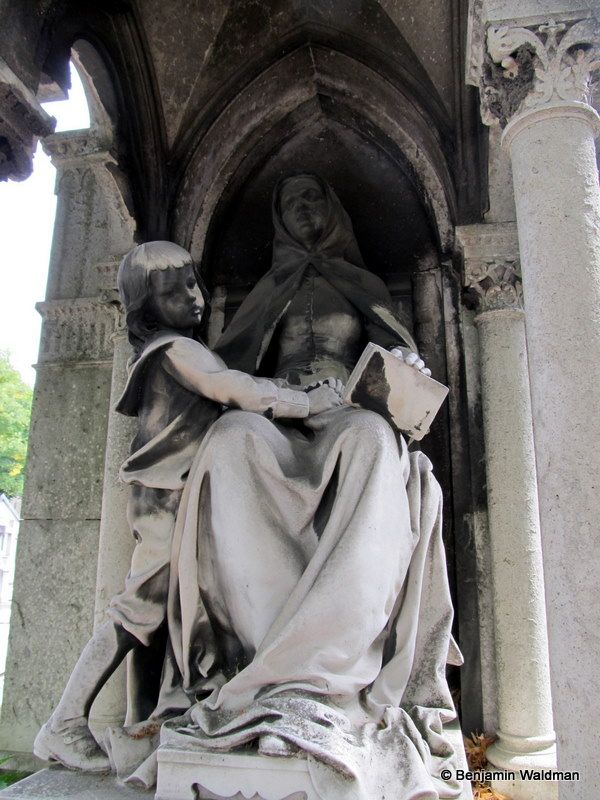
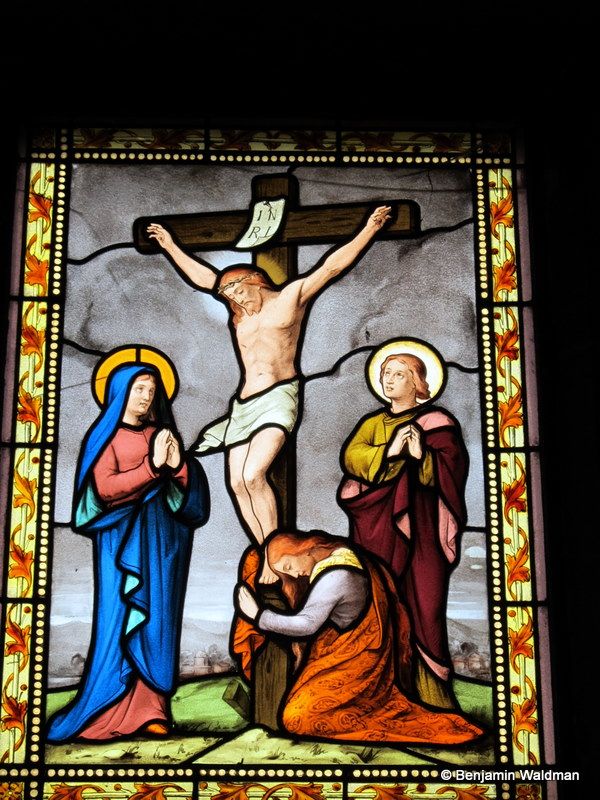
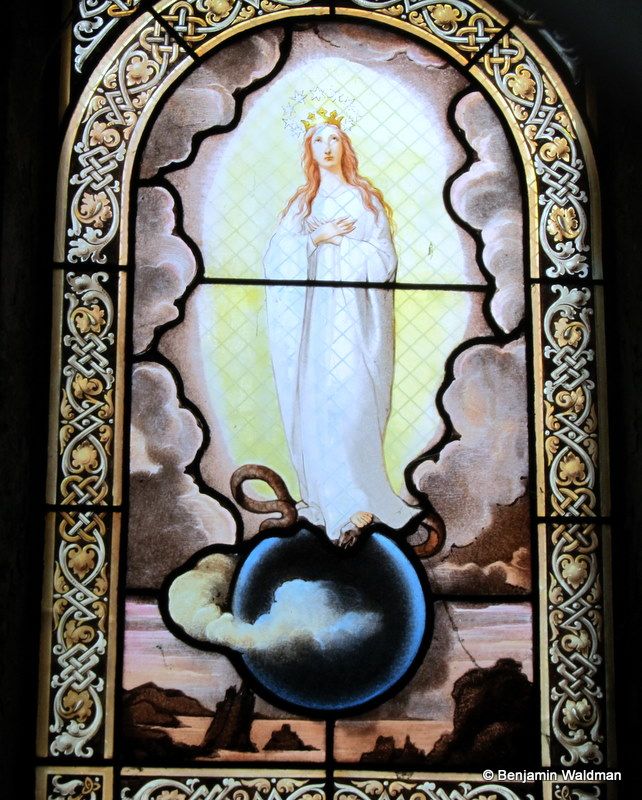
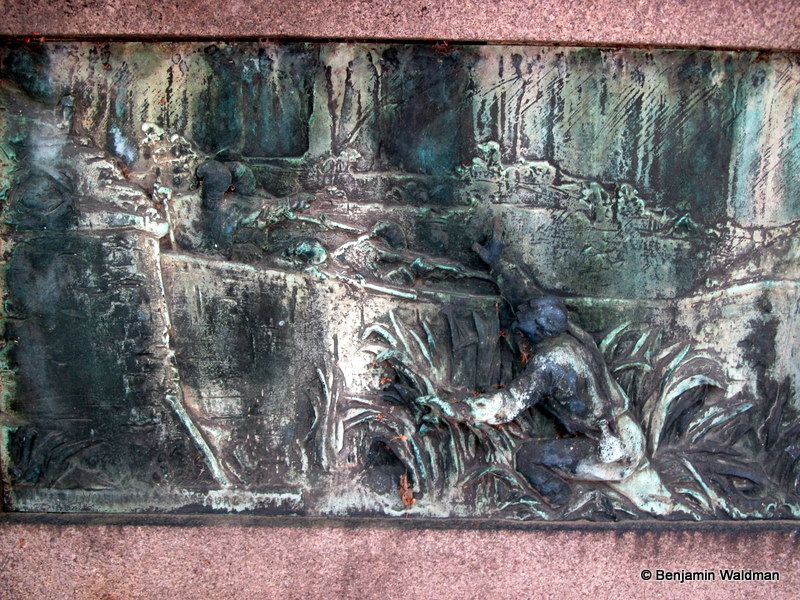
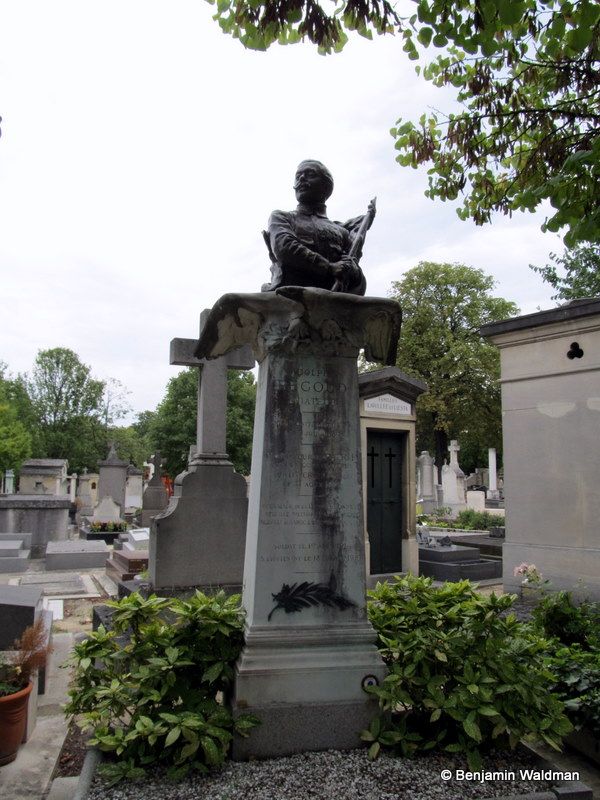
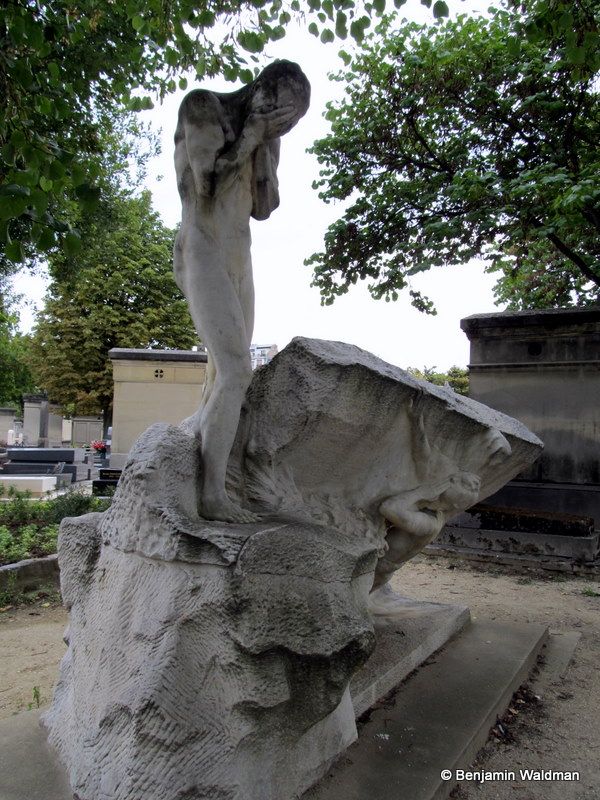
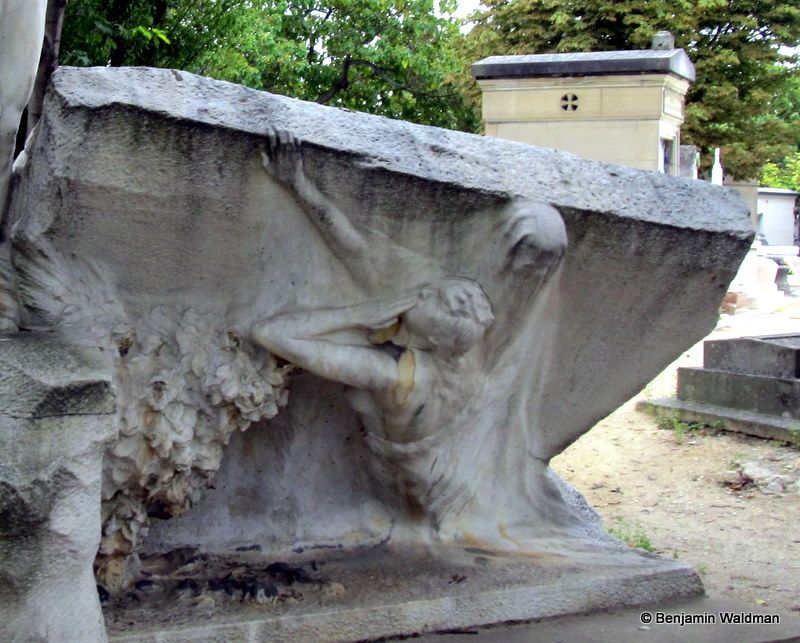
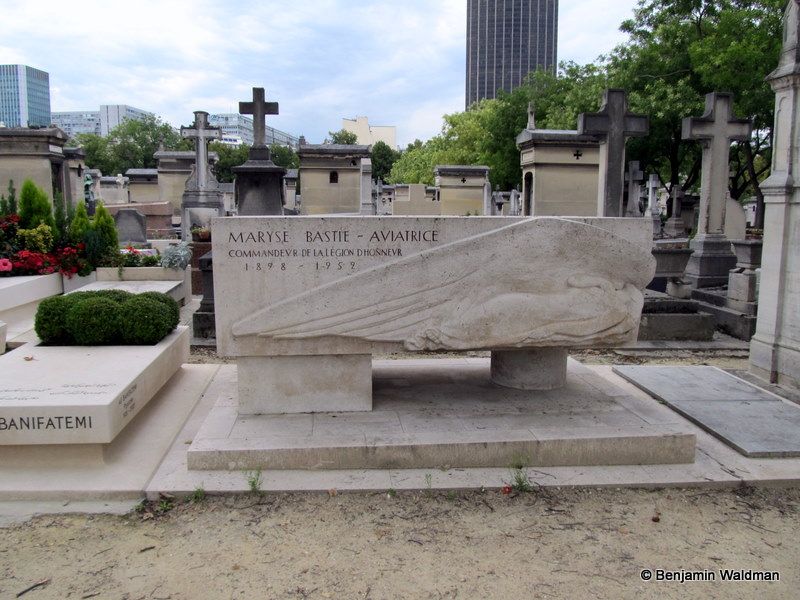
Views of the cemetery:
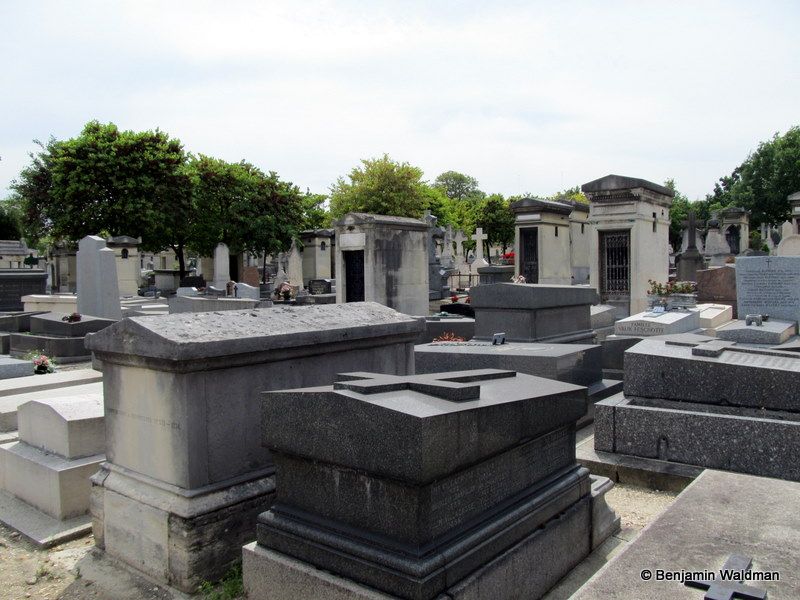
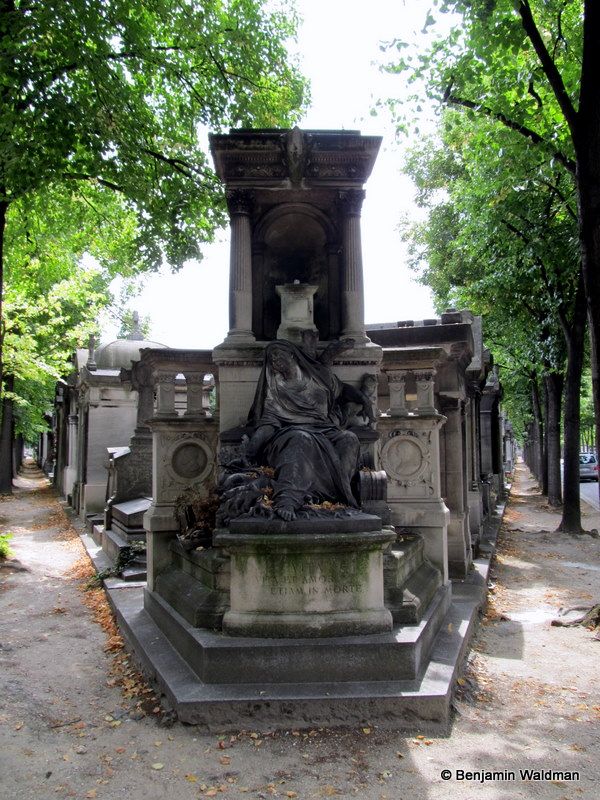
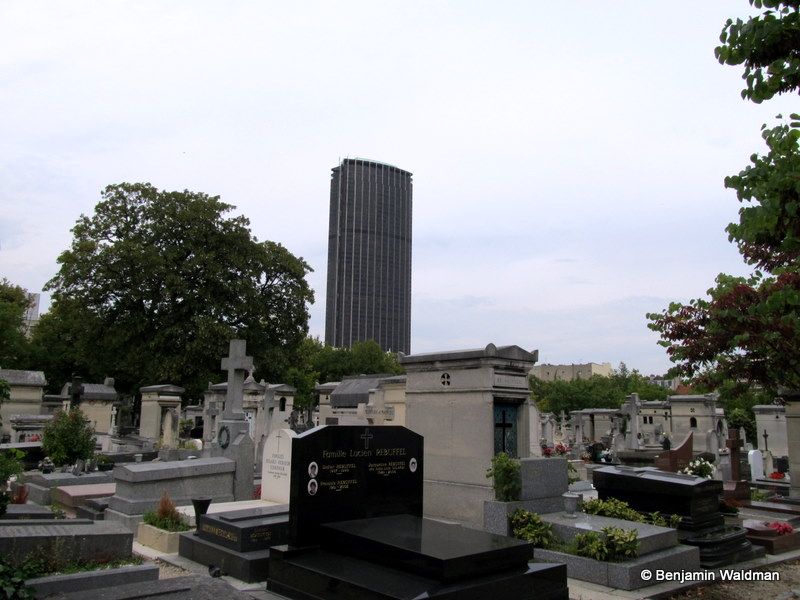
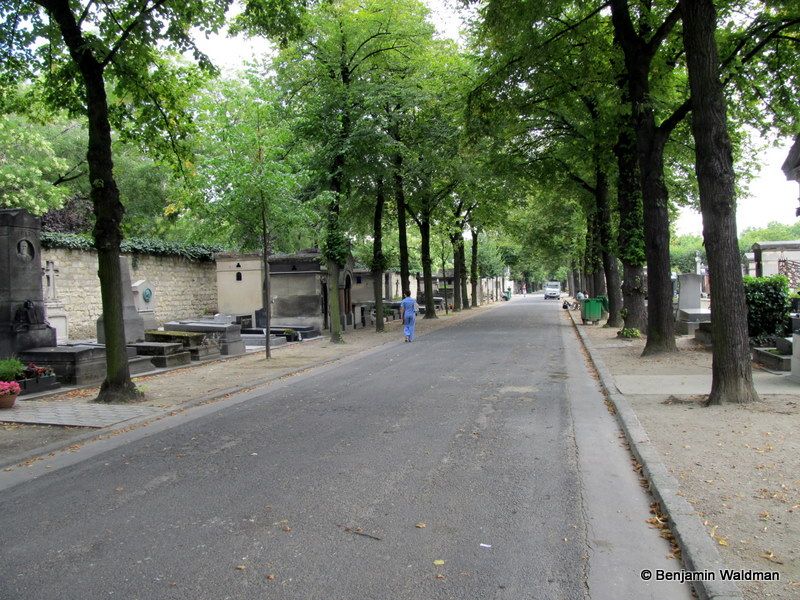
The Cemeteries of Paris:The Treasures of the Père Lachaise Cemetery Part IThe Treasures of the Père Lachaise Cemetery Part IIThe Treasures of the Montmartre CemeteryThe Treasures of the Montparnasse CemeteryThe Treasures of the Passy CemeteryThe Treasures of the Picpus Cemetery
Subscribe to our newsletter